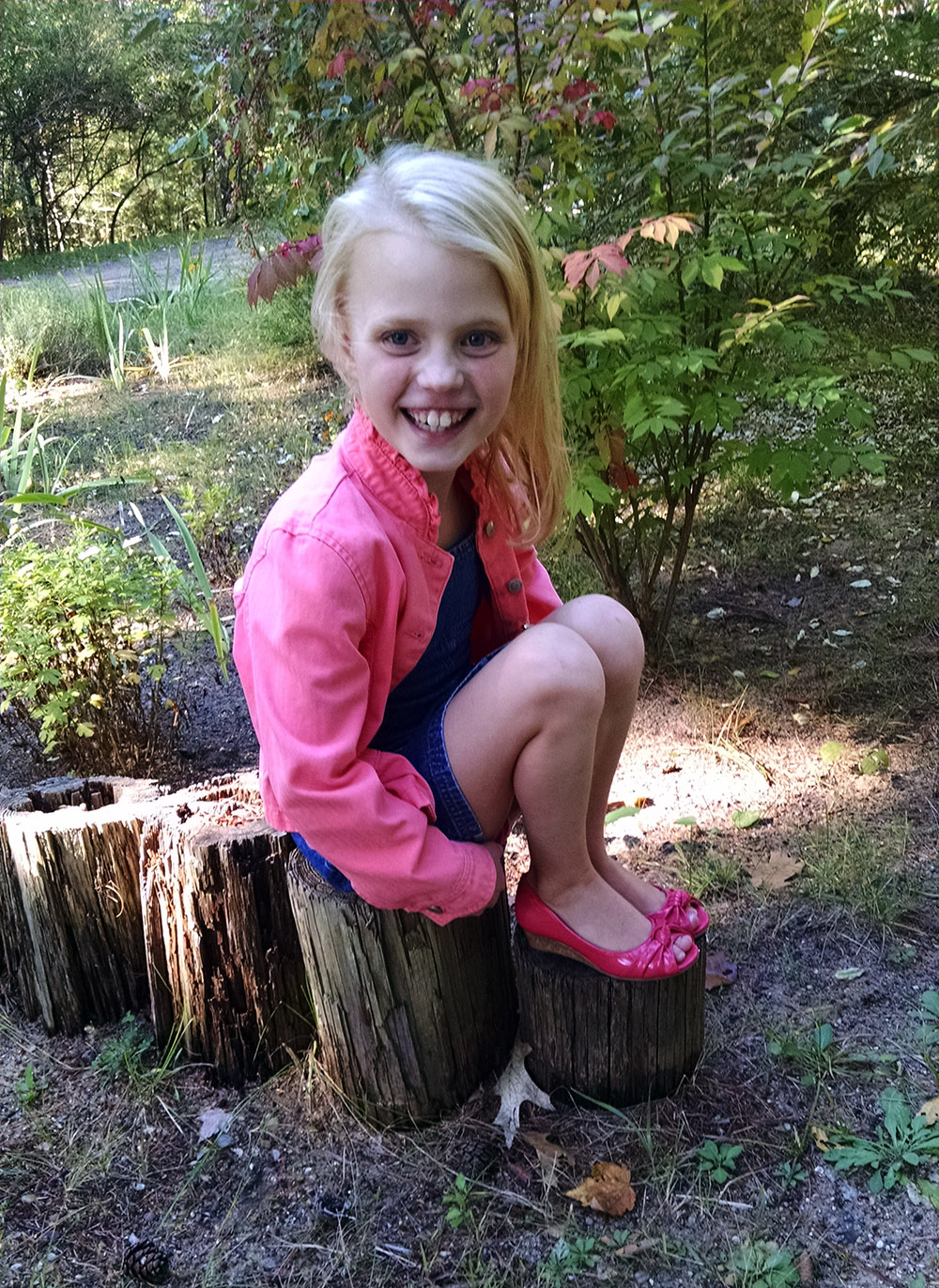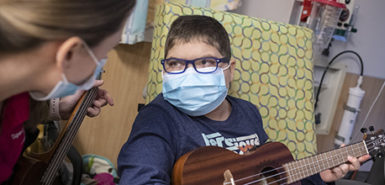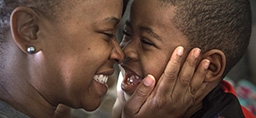
Even before she was born, 8-year-old Nora McGrew’s parents knew she had hydronephrotic kidneys.
Two years later, they learned she also had a very rare genetic disorder that complicated her health problems.
Kidneys filter the blood and eliminate waste by creating urine. In Nora’s case, they weren’t working.
“She was a marshmallow baby,” said Nora’s mom, Tonya McGrew. “Because her kidneys weren’t working, her fingers and toes were like sausages. When she was just a little baby, they drained seven pounds of liquid from her. It was so distressing to see her that way.”
For years, Nora’s life was a series of 250-mile roundtrips from her Traverse City home to the Spectrum Health Helen DeVos Children’s Hospital in Grand Rapids. She had 29 hospital admissions and, eventually, daily peritoneal dialysis.
Through it all, Nora was a real trooper. At age 5, she often reminded her family that her dialysis was just “maintenance, like getting an oil change.” Like many kids with health issues, she collected bravery beads for each event or procedure at the hospital.
Today she has six necklaces with hundreds of beads on each.
In 2012, Nora received a new kidney from her aunt. The transplant surgery not only saved her life, it also let her become an active child who can climb trees, bike, swim, go camping and attend birthday parties.
In fact, while she was climbing a tree this spring, Nora tumbled down and sprained her wrist. Her mom took it in stride.
“That’s normal kids’ stuff,” McGrew said. “I’m so thankful to be taking care of normal kids’ stuff instead of life-and-death issues.”
Although Nora still needs regular monitoring, the family is spending a lot less time on the road thanks to the addition of a Spectrum Health pediatric nephrology clinic in Traverse City.
“Having the clinic here is a godsend for our family and for others in Northern Michigan and the Upper Peninsula,” McGrew said.
It’s not easy to be a kid with kidney disease
Pediatric nephrologist Julia Steinke, MD, was part of the original team that treated Nora. She and others in the pediatric nephrology program see more than 3,800 children each year with all stages of chronic kidney disease.
In addition to the pokes, prods and medical procedures, the young patients struggle to have a normal life.
For example, fluid intake has always been a big challenge for Nora. Before her transplant, she was limited to only 25 ounces a day because her kidneys weren’t working. But now, she needs to drink at least 64 ounces of liquid a day to keep her kidneys healthy.
“One of the big issues for kids with kidney failure is diet restrictions,” Dr. Steinke said. “It can be very hard because we need to take away foods that tend to be kids’ favorites like ketchup, pizza, spaghetti, soft drinks, oranges, chocolate and cheese due to their phosphorus and potassium content. Too much potassium could be life threatening.”
Even kids who had a successful kidney transplant may have a difficult time.
“After a transplant, we encourage kids to be proud that they are survivors,” Dr. Steinke said. “But they struggle because they want normalcy and complete freedom from medications and medical needs. It’s hard for them to look down the road and see how important it is to protect their kidney for the future.”
Because children have unique physiological and social needs that are different than adult needs, the pediatric nephrology team includes dietitians, social workers and others who pay special attention to the children’s development and growth. Their goal is to help kids with kidney issues become independent adults.
“It’s so rewarding because kids are so resilient,” Dr. Steinke said. “You watch the things they go through and know most adults couldn’t go through half of that and still be so cheerful.”
 /a>
/a>
 /a>
/a>
 /a>
/a>